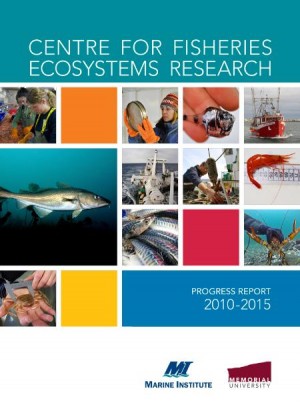$2.6-million investment supports fisheries science
 World-class fisheries science at the Marine Institute's Centre for Fisheries Ecosystems Research (CFER) continues to be supported by the provincial government.
World-class fisheries science at the Marine Institute's Centre for Fisheries Ecosystems Research (CFER) continues to be supported by the provincial government.
Budget 2015 is providing $2.6 million to continue this support.
Each year since 2010, much of the research has taken place aboard the RV Celtic Explorer. On May 5 Premier Paul Davis toured the vessel joined by Vaughn Granter, minister, Fisheries and Aquaculture, and representatives from the Marine Institute.
“Newfoundland and Labrador is the only province in the country to solely fund its own offshore fisheries research," said Premier Davis. "The Celtic Explorer is one of the most advanced fisheries research vessels in the world and has proven invaluable in the study of fisheries ecosystems off our province’s coasts. The relationship between leading-edge science and long-term success in resource-based industries is clear. Our government continues to invest in science that will inform future decision-making and support the future sustainability of the fishery.”
Since 2010 the provincial government has provided more than $15 million to CFER to support the long-term sustainability of provincial fisheries resources. CFER’s research focuses on a number of areas including surveys; stock assessments and sustainable fisheries; ecosystems structure and change; climate and fisheries influences; and species biology, ecology and behaviour.
“Prosperity and sustainability require that decisions and activities in our fisheries are based on sound evidence and science and much of this research starts right here with the Centre for Fisheries Ecosystems Research and this world-class research vessel," said Minister Granter. "Given the recently observed ecosystem changes and resurgence of the Northern cod stock, the importance of the scientific survey work that will be undertaken this year can hardly be overstated.”
The RV Celtic Explorer is fitted with the latest electronics and scientific equipment to complete this work, including ocean mapping technologies, dry and wet laboratory spaces, remote operated vehicle capability and echo sounders for acoustic surveying. The vessel, owned by the Irish Marine Institute, has been chartered for one month in each of the past five years to support CFER’s fisheries science activities.
“The fishing industry in Newfoundland and Labrador is facing many challenges and our role is to make a significant contribution to maintaining a sustainable and economically viable fishing industry," said Glenn Blackwood, vice-president (Marine Institute). "Our research, which has had a major impact to date, continues today as the team joins the RV Celtic Explorer for the next fisheries survey focused on Northern cod and other species off our coast.”
During the event, CFER also presented a five-year progress report highlighting its researchers, students and technologists and the innovative research conducted since 2010.
QUICK FACTS
- Budget 2015 provides $2.6 million to support leading-edge fisheries science at CFER bringing total funding provided to the centre to more than $15 million since 2010.
- Newfoundland and Labrador is the only province in Canada to solely fund its own offshore fisheries research initiatives.
- The RV Celtic Explorer is fitted with the latest electronics and scientific equipment to support fisheries research, including ocean-mapping technologies, dry and wet laboratory spaces, remote operated vehicle capability and echo sounders for acoustic surveying.
- At 65.5 metres in length, the RV Celtic Explorer can accommodate 35 personnel, including 20-22 scientists. The vessel is owned by the Irish Marine Institute and is based in Galway, Ireland.